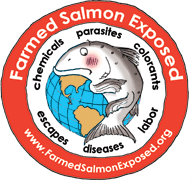Cuba Could Be Impacted by Gulf Oil Spill
For the most up-to-date information on the BP Deepwater Horizon oil spill’s potential impacts on Cuba, please visit our special “Cuba at Risk” page.
Since its discovery of oil and natural gas reserves in the Florida straits, Cuba’s preparations for full-scale offshore oil and gas development has raised alarm in the United States, particularly in Florida where it is estimated that much of a catastrophic spill originating in Cuba would be swept by Gulf currents. Ironically, it is now Cuba that faces the threat of a massive oil spill by the United States. The disastrous oil spill from the BP Deepwater Horizon now threatens Cuba, the largest and most biologically diverse island in the Caribbean, due to those same Gulf currents. To make matters worse, the economic embargo imposed upon Cuba by the United States decades ago makes collaboration and coordination exceedingly difficult during this crisis. Read more






 Tune in to NPR station WGCU (Southwest Florida) on Wednesday, August 26, 2009 at noon Eastern/9am Pacific. Dr. David E. Guggenheim, the “Ocean Doctor,” will be part of a radio discussion on “
Tune in to NPR station WGCU (Southwest Florida) on Wednesday, August 26, 2009 at noon Eastern/9am Pacific. Dr. David E. Guggenheim, the “Ocean Doctor,” will be part of a radio discussion on “

